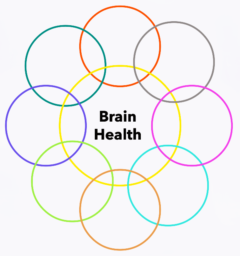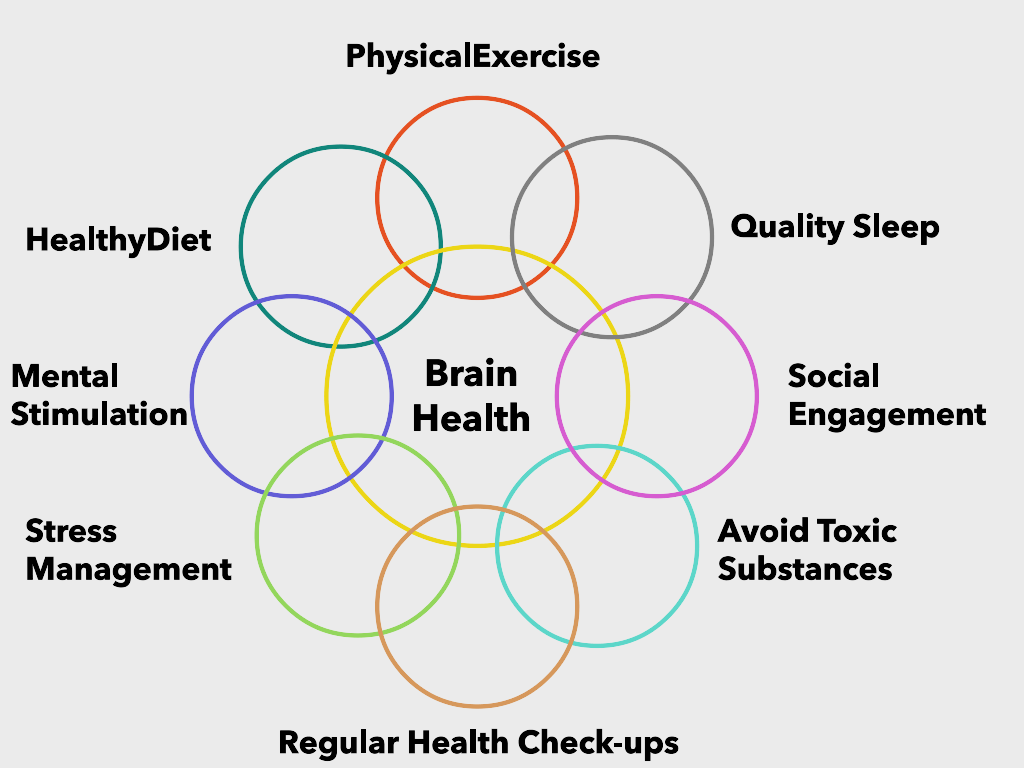
Aging gracefully isn’t just a matter of good genes or sheer luck. It’s about making tangible choices that favor your brain’s health over time. Think of this approach like investing in a retirement plan, but for your cognitive wellbeing. The choices you make today can have a substantial impact on your mental agility and overall brain function as the years roll by.
The brain, a remarkable but complex organ, requires optimal conditions to function effectively, particularly as it ages. The ‘use it or lose it’ principle is incredibly relevant here, suggesting that our lifestyle choices can either sharpen or dull our cognitive abilities. We now have substantial evidence to suggest that mental decline is not an inevitability of aging but can be influenced by how we live our lives.
By adopting a brain-healthy lifestyle, you do more than just nurture your neurological longevity; you enhance your overall wellbeing. Activities that bolster brain health often contribute to a healthier heart, a leaner physique, and improved emotional stability. It’s a holistic advantage that strengthens the entire system of mind and body.
I’ll explore how certain dietary habits, physical activities, and social engagements not only preserve but can potentially improve your brain function. These proactive measures are indicative of a life not just lived, but lived well, as each aspect of a brain-healthy lifestyle supports the other, forming a robust foundation for your golden years.
Transitioning into the dietary realm, it’s worth mentioning that the food on your plate plays a pivotal role in cognitive maintenance and enhancement. Let’s dissect the dietary patterns and essential nutrients that constitute the cornerstone of brain health, laying the groundwork for a sharper, more resilient mind.
Nutrition’s Role in Nurturing Neurological Health
Your diet plays a starring role in maintaining your brain’s health as you age. A balanced eating plan, rich in certain foods, can help protect your brain against cognitive decline. Scientific studies continue to highlight the benefits of diets like the Mediterranean and MIND diets for long-term neurological wellness.
These brain-supportive eating patterns emphasize fruits, vegetables, whole grains, and lean proteins, particularly fish. They also recommend nuts and olive oil, which are high in healthy fats. It’s the complex interaction of these nutrients that may boost brain health.
Key nutrients that stand out for brain health include omega-3 fatty acids, found abundantly in fatty fish, which are linked to lower levels of beta-amyloid deposits, a marker for Alzheimer’s. Antioxidants, present in berries and leafy greens, fend off oxidative stress, a culprit behind neuron damage. Regular consumption of these foods can be beneficial.
Incorporating these foods into your diet doesn’t have to be a chore. Simple swaps and additions—like replacing butter with olive oil or snacking on nuts instead of chips—can make a significant difference. Remember, balance is key. It’s perfectly acceptable to enjoy the occasional treat as part of a brain-healthy eating pattern.
Embrace a pragmatic approach to nutrition—no need for drastic changes overnight. Gradual integration of brain-boosting foods into your daily routine is the sustainable way to support your cognitive health as you journey through the years.
Staying Active: Physical and Cognitive Exercises for the Aging Brain
After integrating brain-supportive nutrients into your diet, it’s essential to pair that with a robust activity plan. Regular physical and mental exercises are twin pillars supporting not just your cognitive health, but your overall vitality as you age.
It’s well-documented that physical exercise can have a positive effect on your brain. Engaging in activities like walking, swimming, or yoga enhances blood flow, which brings more oxygen and nutrients to your brain cells. The endorphins released during exercise also play a role in reducing stress, which can impact cognitive function negatively.
Variety is key when considering exercise options. Aerobic activities like swimming or cycling fuel cardiovascular health and, by extension, cognitive maintenance. Strength training, according to several studies, can also have a profound effect by promoting neuronal growth.
As for mental exercise, the brain thrives on novelty and complexity. Consider learning a new language or musical instrument, or delve into puzzles and games that challenge memory and problem-solving skills. Lifelong learning doesn’t just enrich your life – it keeps your mind sharp.
Remember, the ultimate goal here is developing a routine that you’ll stick with long-term. Whether it’s a daily walk, a weekly dance class, or regular chess games with friends, consistency is what will keep your brain at its best.
Social and Emotional Wellbeing: The Community Connection
I cannot stress the importance of social engagement enough when it comes to maintaining a healthy brain as you age. Humans are inherently social creatures, and it turns out that our interactions can actually fortify our cognitive faculties. Forming meaningful relationships and staying connected with others not only brings joy and support but also serves as a workout for your brain. Regular interactions encourage the exchange of ideas, challenge our thinking, and keep our minds sharp.
Equally vital is the art of coping with emotions as we journey through the seasons of life. Nurturing emotional health plays a critical role in cognitive well-being. It’s vital to find healthy outlets for emotions and stress, which, if left unchecked, can take a toll on the mind. Techniques that promote emotional balance, like practicing gratitude or journaling, can profoundly benefit brain health.
Cultivating meaningful interpersonal connections might seem daunting, but it’s achievable through community engagement, volunteering, or even joining clubs or groups that share your interests. The key is to take that first step and reach out, because the ties you build will serve as lifelines to cognitive vitality.
And let’s not forget the impact of mindfulness and other stress-reduction strategies. Incorporating practices such as meditation, deep-breathing exercises, or yoga into your daily routine can enhance cognitive function by reducing stress levels and improving focus and concentration.
In conclusion, a brain-healthy lifestyle isn’t just about what you eat or how often you exercise. It’s equally about the quality of your social interactions and the tools you use to maintain emotional balance. Foster your social networks, manage stress effectively, and watch as these efforts manifest in a sharper, more engaged mind. Your brain—and your future self—will thank you.


